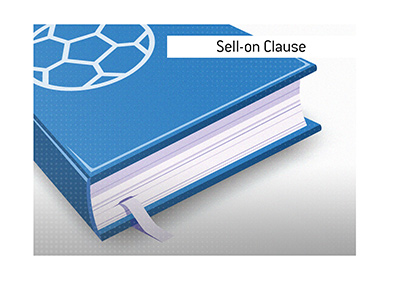Definition of Sell-on Clause
Not every footballer is a one-club player. Inevitably, players will want to move on to a higher or lower-tier club as their career progresses. Clubs usually go along with this, as they don't want to risk losing promising or star players for free. However, they still want to make as much money off of a departing asset as possible. Enter the sell-on clause.
 Clubs using the sell-on clause for one of their players normally accept a lower base price for the player in exchange for a percentage of the profits for any future transfers. Let's say that a player named Ristiano Cronaldo is sold from some non-league Portuguese team for an extremely cheap price, but with a 25% sell-on clause included in that transfer deal. Then a giant like Real Madrid, Manchester United or Juventus come in and offer a world record deal for him. That non-league club will be entitled to 25% of that transfer fee.
Clubs using the sell-on clause for one of their players normally accept a lower base price for the player in exchange for a percentage of the profits for any future transfers. Let's say that a player named Ristiano Cronaldo is sold from some non-league Portuguese team for an extremely cheap price, but with a 25% sell-on clause included in that transfer deal. Then a giant like Real Madrid, Manchester United or Juventus come in and offer a world record deal for him. That non-league club will be entitled to 25% of that transfer fee. Some of the more recent high-profile sell-on clauses amongst Europe's top 5 leagues include Angel di Maria's move to PSG (giving £5 million to former club Real Madrid), Raheem Sterling to Manchester City (giving £8 million to Queen's Park Rangers) and Cesc Fabergas (from Barcelona to Chelsea, giving Arsenal £5.6 million). Of course, clubs can't see into the future and might miss out on one of these chances. One of the most high-profile cases of missing a potentially profitable sell-on clause was when Southampton waived the sell-on clause for Gareth Bale to Tottenham, who would then go on to move to Real Madrid for £86 million.
The sell-on clause can make quite a lot of money if used on the correct players. Knowing which players those are can make the difference between a club surviving or even thriving.

